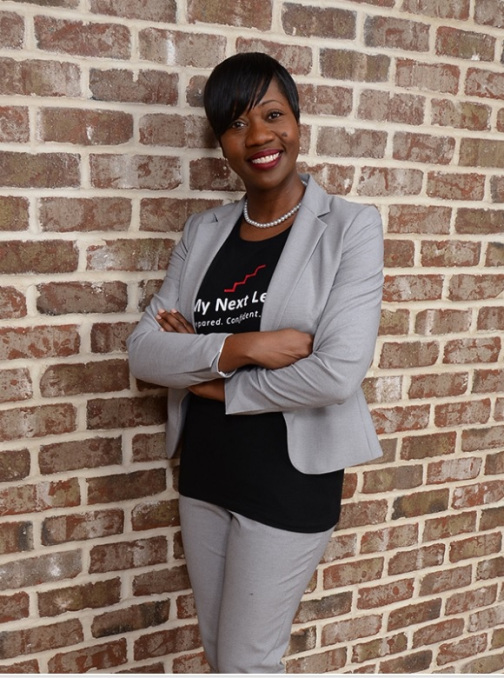“The numbers don’t lie check the scoreboard.” ~ Jay Z
While staring Monday, July 31st in the face, I’m engulfed in a plethora of emotion because it’s Equal Pay Day for Black women. The catalyst for my emotion has a lot to do with statistics documented in the (click here) Black Women and the Wage Gap fact sheet but also because I am a Black woman/Career Coach who has not only experienced the disparity firsthand, but whose clients feel the impact as well. Statistically speaking:
- In the 20 states with the largest numbers of Black women working full time, year-round pay for Black women ranges from 48 to 69 cents for every dollar paid to White, non-Hispanic men in those states
- Median wages for Black women in the US are $36,203 per year compared to median wages of $57,204 annually for White, non-Hispanic men which equates to a difference of $21,001
- If the wage gap were eliminated, on average a Black woman working full time, year-round would have enough money for:
~2.5 more years of child care
~2.5 additional years of tuition and fees for a four-year public university or the full cost of tuition and fees for a two-year community college
~155 more weeks of food for her family (three years’ worth)
~14 more months of mortgage and utilities payments; nearly 22 more months of rent
As if the stats aren’t enough, it’s unacceptable that we’re having a conversation about women being treated as “less than” and being compensated from that very perspective in 2017. As someone with a strong work ethic who has not only exceeded performance expectations throughout her career; as someone who has watched Black women from entry level roles to the C-Suite give at least 100% to prove their worth, I am adamant about women knowing their worth, earning their worth and believing they are worthy.
While there are multiple contributing factors to our stagnant salary state that undermines the financial fate of Black women, it’s imperative that we allow our “passion” (that’s the politically correct word for frustration) around this topic to include action. I’m grateful for Congresswoman Eleanor Holmes Norton (Dem.-DC) who believes employers should be prohibited from asking job candidates for their salary history during the job interview or salary negotiation process. Her rationale makes sense when you consider her sentiment so eloquently stated in a recent (click here) news release : “Women and minorities often face discrimination in the job application process and in salary negotiations. Many carry lower salaries for their entire careers simply because of wages at previous jobs that were set unfairly. Our bill will require employers to offer salaries to prospective employees based on merit, not gender, race, or ethnicity.”
Employers have the power to shift this conversation but you do as well. In “The Underrepresentation of African American Women in Executive Leadership: What’s Getting In The Way?”, it highlights what Black women must do to proactively manage their careers. We must:
- Know what we want professionally so we can develop and implement a career strategy
- Be willing to monitor our success which includes reevaluation and course correcting when necessary
- Be willing to learn technology, processes, procedures and understand interdependencies
- Take responsibility for our careers minus a passive approach that includes expecting someone else to manage our careers
- Accept leadership positions on projects to demonstrate competencies
I recommend the aforementioned as well as the following during my (click here) complimentary career chats with clients :
- Expand our network to include mentors and sponsors
- Increase visibility
- Negotiate salary
We didn’t arrive at this place overnight so I don’t expect it to change overnight. In 1963, Dr. Martin Luther King said, “In a sense we’ve come to our nation’s capital to cash a check. It is obvious today that America has defaulted on this promissory note insofar as her citizens of color are concerned. Instead of honoring this sacred obligation, America has given the Negro people a bad check, a check which has come back marked insufficient funds.”
In essence, Black women must become the change we expect to see by taking the necessary actions to close the wage gap. At the end of the day, it will take a collaborative effort of both men and women of all ethnicities who have the power to advocate for this long overdue but necessary change in the workplace.
“But unless women and men both say this is unacceptable, things will not change.” ~ Beyoncé
Ericka Spradley, President of My Next Level ensures ambitious professionals and students get hired. As a Career Coach, Adjunct Professor and Author (“30 Min. Career Coach: Interview Basics for High School Students”, “7 Days to Confident Interviews”), she empowers others to take their interviewing skills to the next level so they can ultimately secure employment. Ericka also provides career support/guidance for clients when she’s not working tirelessly to change the career readiness conversation and course curriculum to include interviewing skills. To download your complimentary copy of “5 Simple Strategies to Land Your Ideal Job” click here

